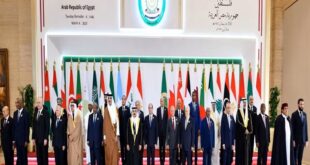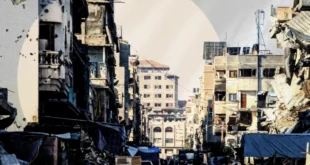Mays Abu Ghosh, a journalism student, says she faced psychological and physical torture under interrogation by Israeli forces.
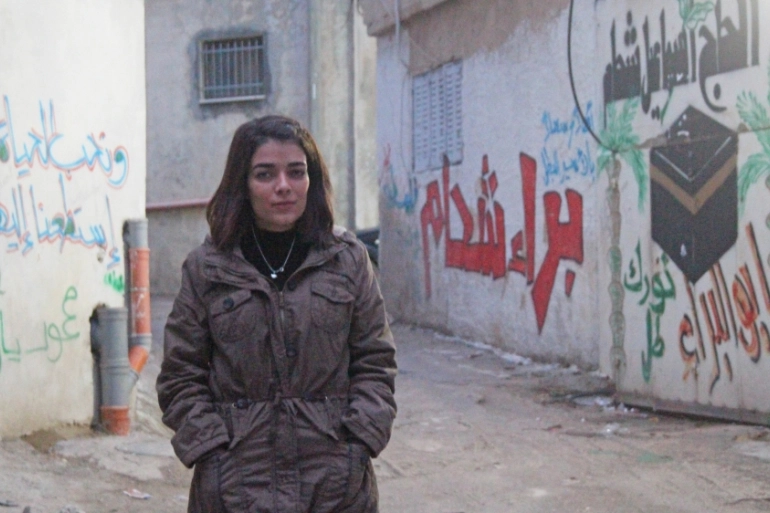
Mays Abu Ghosh, a 22-year-old Palestinian student, was released by Israeli forces on Monday, 15 months after she was arrested.
Abu Ghosh, a journalism student at Birzeit University, was arrested in August 2019 and charged with being a member of the Democratic Progressive Student Pole, a student bloc banned by Israeli military orders, and taking part in student activities against Israeli occupation.
She was also charged with “communicating with an enemy” – she took part in a conference on the Palestinian right of return – and contributing to an allegedly Hezbollah-affiliated news agency.
Abu Ghosh was fined 2,000 shekels ($600) and released from Damon prison at the Jalameh checkpoint, north of the illegally occupied West Bank city of Jenin, where her family and friends received her.
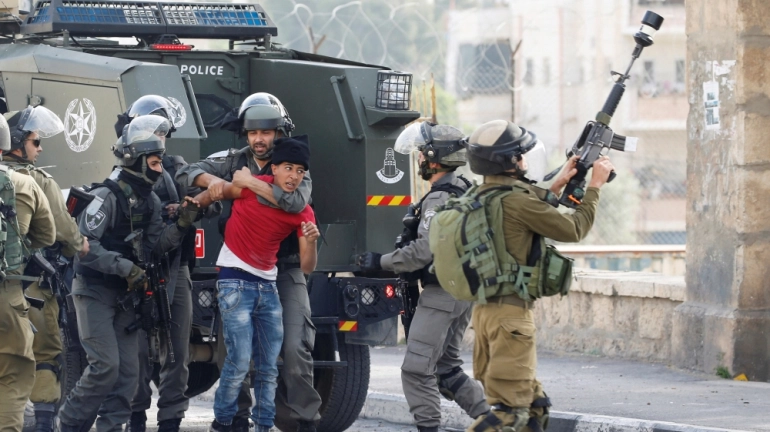
Israeli border policemen detain a Palestinian protester at a demonstration in support of Palestinian prisoners on hunger strike in Israeli jails, in the illegally occupied West Bank town of Bethlehem [File: Ammar Awad/Reuters]
Several human rights groups said Abu Ghosh told them about the physical and psychological torture she suffered for more than a month at the notorious Maskobiyeh interrogation centre in Jerusalem.
The groups added that she was forced into several stress positions for extended hours and was threatened that she would go home either paralysed or mentally broken. She was also forced to listen to the cries and screams of other prisoners undergoing interrogation, and faced repeated slaps to her face as Israeli soldiers shouted obscenities at her.
“I want to tell everyone what happened with me during the interrogation and torture period,” Abu Ghosh told Al Jazeera a day after she was released. “Not as something that has happened to me but for any Palestinian to know what to expect when Israel arrests them.”
Israeli military courts, which Palestinians in the occupied territories are tried by, have a 99.74 percent conviction rate.
“The military prosecution charged Abu Ghosh over acts related to her student union activities at the university in addition to her media action,” said Addameer, a prisoner rights group. “Such a practice demonstrates the occupation authorities’ criminalisation of fundamental human rights through military orders.”
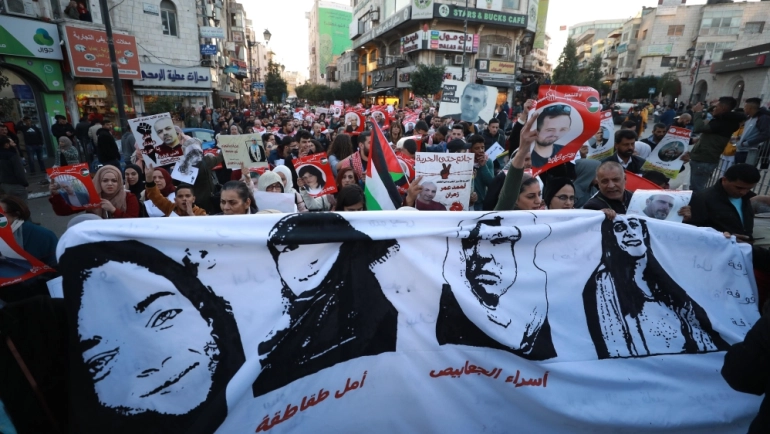
Palestinians stage a demonstration in support of Palestinian prisoners in Israeli jails, in the occupied West Bank city of Ramallah in December 2019 [File photo]
Abu Ghosh added that the message she carries from other female prisoners is one of “national unity”.
“They also have demands regarding living conditions, especially for those who are serving long sentences,” she said. “Cameras in the prison courtyard are on all the time and violate their privacy.”
Family targeted
In January 2016, Abu Ghosh’s older brother Hussein was killed by Israeli forces for allegedly carrying out a stabbing attack.
Israeli forces then demolished their family home.
In August 2019, Abu Gosh’s then home was raided at dawn by Israeli forces accompanied by military dogs.
She was taken to a separate room and ordered to switch on her laptop and phone. Following her refusal, she was blindfolded, handcuffed and arrested.
A month later, her 17-year-old brother Suleiman was arrested to pressure Abu Ghosh into a confession. He served four months under administrative detention – imprisoned by Israel without charge or trial. Her parents were also summoned for interrogation.
According to Addameer, 40 Palestinian women are imprisoned by Israel. The total prison population currently stands at 4,500 – including 170 minors and 370 administrative detainees.
In Damon prison, seven prisoners have taken up university courses but a raid on their cells by the Israeli Prison Service last week resulted in their books being confiscated.
Following her release, Abu Ghosh said she wants to finish her studies and continue with her media training.
“The prison authorities threatened to isolate prisoners who continue their studies,” Abu Ghosh said.
“We [with other prisoners] formed a small programme to study philosophy, Arabic literature, and poetry. We also had certain rituals we did together, like getting ready before a family visit.”

SOURCE : AL JAZEERA




 World Opinions Débats De Société, Questions, Opinions et Tribunes.. La Voix Des Sans-Voix | Alternative Média
World Opinions Débats De Société, Questions, Opinions et Tribunes.. La Voix Des Sans-Voix | Alternative Média


